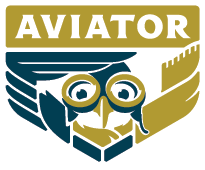Vision-Impaired Turkey Vulture Benefits from the Aviator Harness
Hi Steve,
Thanks so much for the wonderful opportunity for Griffin’s (our Turkey Vulture) first ever modeling debut! You are really onto something here! Not only is Griffin the most adorable vulture in the whole wide world, he has a powerful message to share with the worlds of wildlife rehabilitation, falconry, zoos, and captive wildlife management!!
Griffin came to Turtle Ridge Wildlife Center last year as a young juvenile after being observed wandering around in circles in a field for a few days. Our veterinarian’s exam revealed that he is vision impaired and non-releasable. Since he would not be able to return to the wild, we raised him in our clinic with lots of social interaction to prepare him for a more comfortable captive life.
When we started working with Griffin in January of 2015, we initially attempted the standard glove training. He took to the glove wonderfully and began eating his meals on the gauntlet. However, when we began raising the glove beyond a couple of feet off the ground he became uncomfortable, we believe due to his impaired sight. We were stumped as to how to proceed until one of our volunteer education team members suggested trying The Aviator Harness she used with her parrots. It made perfect sense to allow Griffin to stay in his comfort zone on the ground while maintaining his safety. We contacted The Parrot University about the possibility of a custom fit harness. They were incredible! Not only did they create a custom fit harness they generously offered to provide it free of charge. It is easy to use and Griffin appears to enjoy his adventures out and about.
Thank you Parrot University for your generosity in creating a safe way for Griffin to provide education to hundreds of folks!
Turkey Vultures have long been expected to wear traditional raptor equipment like anklets, jesses, and leashes. Those methods meant to protect the birds are actually potentially life threatening to Vultures and to Crows as well! We also happen to have two crows in our education program. Many caregivers are unaware of the threat of injury to the birds when wearing traditional equipment such as broken legs, stretched joints and damaged nerves.
Jean Daugherty
Turtle Ridge Wildlife Center


